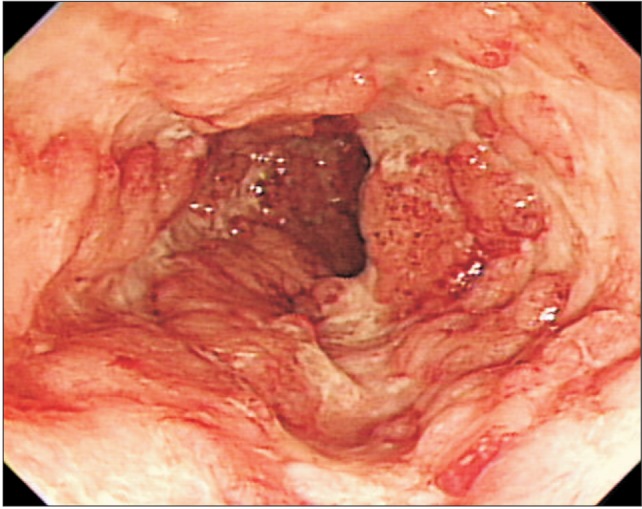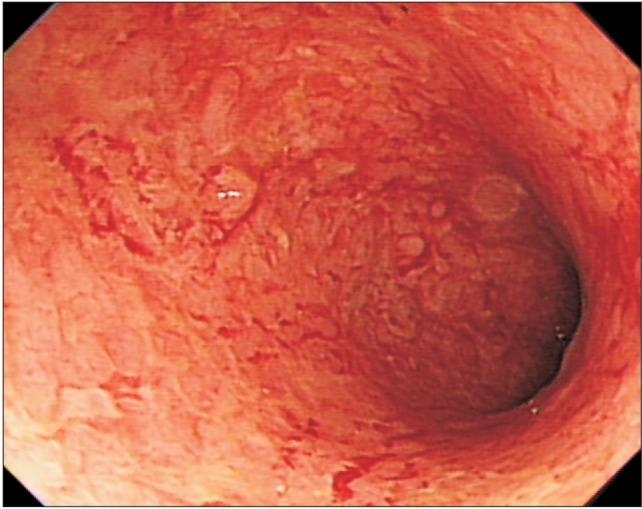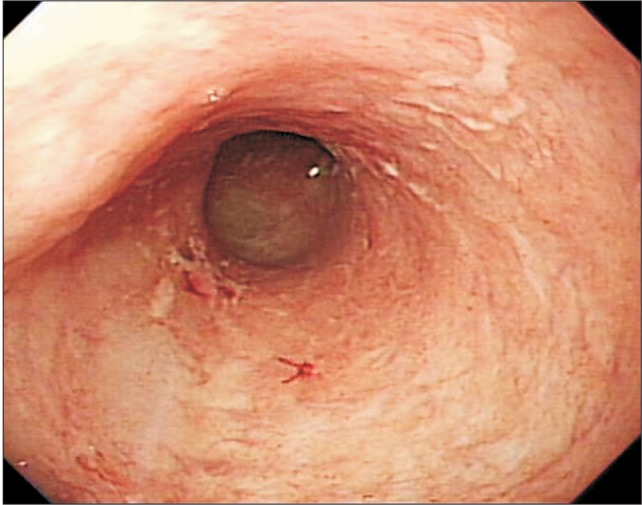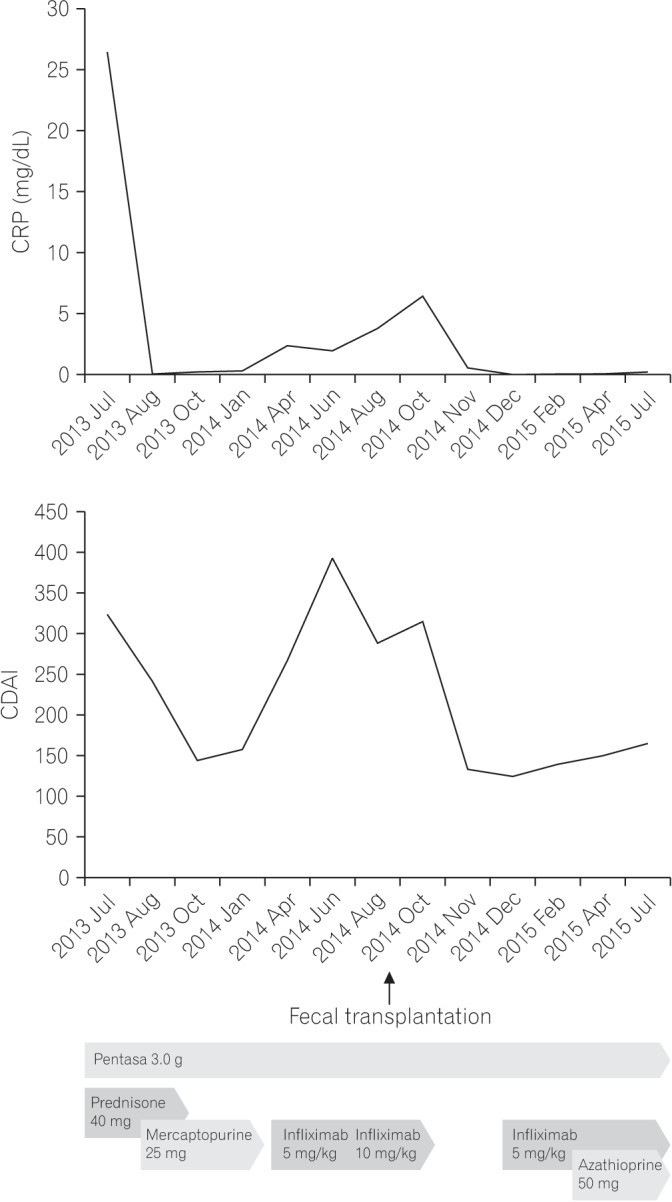Intest Res.
2017 Apr;15(2):244-248. 10.5217/ir.2017.15.2.244.
Fecal microbiota transplantation for refractory Crohn's disease
- Affiliations
-
- 1Department of Internal Medicine, Seoul St. Mary's Hospital, College of Medicine, The Catholic University of Korea, Seoul, Korea. yscho@catholic.ac.kr
- 2Department of Internal Medicine, Uijeongbu St. Mary's Hospital, College of Medicine, The Catholic University of Korea, Uijeongbu, Korea.
- KMID: 2425168
- DOI: http://doi.org/10.5217/ir.2017.15.2.244
Abstract
- Approximately one-third of patients with Crohn's disease do not respond to conventional treatments, and some experience significant adverse effects, such as serious infections and lymphoma, and many patients require surgery due to complications. Increasing evidence suggests that specific changes in the composition of gut microbiota, termed as dysbiosis, are a common feature in patients with inflammatory bowel disease (IBD). Dysbiosis can lead to activation of the mucosal immune system, resulting in chronic inflammation and the development of mucosal lesions. Recently, fecal microbiota transplantation, aimed at modifying the composition of gut microbiota to overcome dysbiosis, has become a potential alternative therapeutic option for IBD. Herein, we present a patient with Crohn's colitis in whom biologic therapy failed previously, but clinical remission and endoscopic improvement was achieved after a single fecal microbiota transplantation infusion.
MeSH Terms
Figure
Cited by 3 articles
-
Diagnosis and treatment of Crohn's disease
Hyun-Soo Kim
J Korean Med Assoc. 2017;60(6):484-490. doi: 10.5124/jkma.2017.60.6.484.Management of
Clostridioides difficile infection in patients with inflammatory bowel disease
Sahil Khanna
Intest Res. 2021;19(3):265-274. doi: 10.5217/ir.2020.00045.Is there a potential role of fecal microbiota transplantation in the treatment of inflammatory bowel disease?
Chang Soo Eun
Intest Res. 2017;15(2):145-146. doi: 10.5217/ir.2017.15.2.145.
Reference
-
1. Lee KM, Lee JM. Crohn's disease in Korea: past, present, and future. Korean J Intern Med. 2014; 29:558–570. PMID: 25228829.
Article2. Manichanh C, Borruel N, Casellas F, Guarner F. The gut microbiota in IBD. Nat Rev Gastroenterol Hepatol. 2012; 9:599–608. PMID: 22907164.
Article3. Kim NH, Jung YS, Moon CM, et al. Long-term clinical outcomes of Korean patient with Crohn's disease following early use of infliximab. Intest Res. 2014; 12:281–286. PMID: 25374493.
Article4. Wang ZK, Yang YS, Chen Y, Yuan J, Sun G, Peng LH. Intestinal microbiota pathogenesis and fecal microbiota transplantation for inflammatory bowel disease. World J Gastroenterol. 2014; 20:14805–14820. PMID: 25356041.
Article5. Colman RJ, Rubin DT. Fecal microbiota transplantation as therapy for inflammatory bowel disease: a systematic review and meta-analysis. J Crohns Colitis. 2014; 8:1569–1581. PMID: 25223604.
Article6. Kelly CR, Kahn S, Kashyap P, et al. Update on fecal microbiota transplantation 2015: indications, methodologies, mechanisms, and outlook. Gastroenterology. 2015; 149:223–237. PMID: 25982290.
Article7. Zhang F, Luo W, Shi Y, Fan Z, Ji G. Should we standardize the 1,700-year-old fecal microbiota transplantation? Am J Gastroenterol. 2012; 107:1755. PMID: 23160295.
Article8. Eiseman B, Silen W, Bascom GS, Kauvar AJ. Fecal enema as an adjunct in the treatment of pseudomembranous enterocolitis. Surgery. 1958; 44:854–859. PMID: 13592638.9. Drekonja D, Reich J, Gezahegn S, et al. Fecal microbiota transplantation for Clostridium difficile infection: a systematic review. Ann Intern Med. 2015; 162:630–638. PMID: 25938992.10. Cammarota G, Ianiro G, Cianci R, Bibbò S, Gasbarrini A, Currò D. The involvement of gut microbiota in inflammatory bowel disease pathogenesis: potential for therapy. Pharmacol Ther. 2015; 149:191–212. PMID: 25561343.11. Bennet JD, Brinkman M. Treatment of ulcerative colitis by implantation of normal colonic flora. Lancet. 1989; 1:164.12. Brandt LJ, Aroniadis OC. An overview of fecal microbiota transplantation: techniques, indications, and outcomes. Gastrointest Endosc. 2013; 78:240–249. PMID: 23642791.13. Cui B, Feng Q, Wang H, et al. Fecal microbiota transplantation through mid-gut for refractory Crohn's disease: safety, feasibility, and efficacy trial results. J Gastroenterol Hepatol. 2015; 30:51–58. PMID: 25168749.
Article
- Full Text Links
- Actions
-
Cited
- CITED
-
- Close
- Share
- Similar articles
-
- Refractory Clostridium difficile Infection Cured With Fecal Microbiota Transplantation in Vancomycin-Resistant Enterococcus Colonized Patient
- Fecal Microbiota Transplantation and the Brain Microbiota in Neurological Diseases
- Fecal Microbiota Transplantation and Its Usage in Neuropsychiatric Disorders
- The practice of fecal microbiota transplantation in inflammatory bowel disease
- Two Cases of Refractory Pseudomembranous Colitis that Healed Following Fecal Microbiota Transplantation





